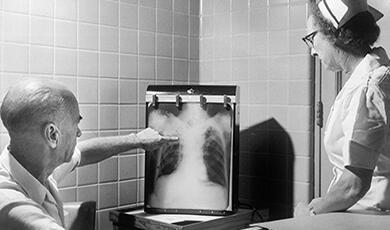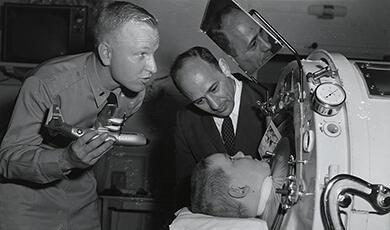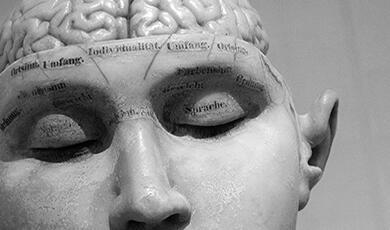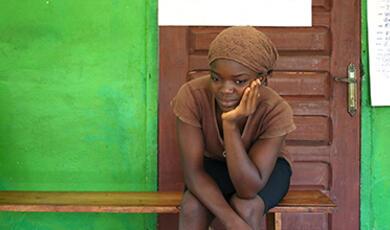Press release: Breast Cancer: A Cultural History

Why did the 19th century ‘radical mastectomy’ persist into the 1980s? Women would be anaesthetized for biopsy and wake up without a breast
Embargo: 12 Jan 2023 7pm
We would like to invite you to a lecture by acclaimed cultural historian Professor Joanna Bourke on Breast Cancer: A Cultural History, on 12 Jan 2023.
Bourke, the Gresham Professor of Rhetoric, has written much about the history of medicine, and her groundbreaking works include books on the history of pain and rape. She leads the Sexual Harms and Medical Encounters (SHaME) project at Birkbeck.
In this lecture Professor Bourke will discuss the history of how the medical establishment treated breast cancer, and how women were treated by it. She will look at how radical surgery became the most common way to deal with breast cancer – in many cases until quite recently; and how for a time it was recommended that women could be anaesthetized for a biopsy and wake up without a breast with no further discussion. Women were encouraged to cover up what had happened to them.
Today, breast reconstruction, despite issues with implants, is still given to the majority of patients. Bourke will also look at startling way that breast cancer (and the ideal breast) was racialized, with many believing Black women did not get breast cancer.
Bourke writes: “Why should we be interested in the cultural history of breast cancer? The most obvious answer is that it afflicts one in eight American and British women over their lifetime.”
On the origins of radical one-step surgery Bourke writes that it may owe its remarkable persistence to both the ideological milieu, and the insurance industry:
“The most influential proponent of surgery for breast cancer was William Stewart Halsted, based at the Johns Hopkins University. Today, his late-nineteenth century operation for breast cancer sufferers is known as the ‘radical mastectomy’…. A woman would be anesthetised, a biopsy taken and tested and, if it proved cancerous, then the mastectomy would take place before the patient woke up. In other words, women would not know in advance if they were going to wake up from surgery with or without a breast. Radical mastectomy and ‘one-step’ procedures were dominant for eighty years, even into the early 1980s.”
“….Why did an operation that left millions of women barely able to comb their own hair continue to be performed for so long? Halsted’s personal influence played a role: he had the institutional backing of the prestigious Johns Hopkins University and was responsible for the most important surgical training courses in the U.S. In The Breast Cancer Wars (2001), historian Barron. H. Lerner also points out that Halsted was less than fully transparent about the operation’s survival rates. At the very least, Halsted’s definition of ‘cure’ was broad: it meant survival for only three years after diagnosis. The ideological milieu of the time was another factor. The radical procedure was consistent with the militarism unleashed by the two world wars and then the Cold War. In the U.S., the power of the insurance industry meant that surgeons were often too timid to attempt fewer radical procedures, fearing that they might be sued if a more minimalist operation resulted in a recurrence of the disease. It was financially advantageous to engage in invasive procedures.”
Finally, Bourke examines the relentless positivity of the narrative around Breast Cancer: “Pathographies tend to follow a particularly invidious narrative of ‘quest’, implying that self-knowledge is acquired through undergoing various trials. Patients are required to perform a kind of stoicism, or even positivity. As activist Rose Kushner put it, patients are expected to enact the ‘red-badge-of-courage’: they are told they should ‘Glue a stylish wig on your pate, chew some Rolaids, and grin and bear it. Never hint to the doctor that the breast cancer medicine is the reason you feel so sick’. Or, as Barbara Ehrenreich expressed it in ‘Welcome to Cancerland’, ‘so pervasive is the perkiness of the breast-cancer world that unhappiness requires a kind of apology…. Cheerfulness is more or less mandatory, dissent a kind of treason’. Those who did not survive are somehow responsible for their death: they lacked the ‘right attitude’ or will-power. Or, perhaps, they simply lacked access to good medical care, generous health insurance, and adequate support systems.”
ENDS
Notes to Editors
You can sign up to watch the hybrid lecture online or in person; or email us for an embargoed transcript or speak to Professor Bourke: l.graves@gresham.ac.uk / 07799 738 439
Read more on Professor Bourke


 Login
Login





